Catch up on the latest in diabetes tech from Dexcom, Abbott, Roche Diabetes Care, Insulet, Medtronic and Know Labs.
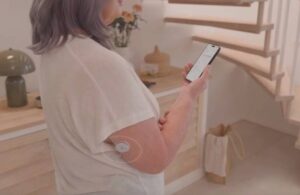
Every year, the diabetes community comes together for the International Conference on Advanced Technologies & Treatments for Diabetes (ATTD).
In this year’s 17th installment, some of the biggest names shared new studies and technologies set to advance the diabetes space. Dexcom, Abbott, Medtronic and more contributed on their end, while some new technologies are coming to the fore as well.
Here are the biggest stories from this year’s ATTD conference in Florence, Italy. (You can also check out the biggest news out of ATTD in 2023 and 2022.)
Dexcom’s direct-to-watch feature
Dexcom announced at ATTD that it introduced a direct-to-Apple-Watch feature for its G7 continuous glucose monitor (CGM) users.
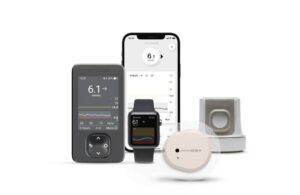
On top of the watch feature, Dexcom announced positive data backing its CGMs and their connectivity to automated insulin delivery (AID). The data includes results from the CGM with both the Tandem Diabetes Care t:slim X2 pump and Insulet Omnipod 5.
Additionally, the company launched Dexcom ONE+ in new geographies and has more data backing its technology. Dexcom began the ONE+ launch in Europe about a month ago. It says the system has now launched in eight markets within one month of first becoming available.
While all this was going on, Dexcom also won the first FDA clearance for an over-the-counter CGM.
Abbott says CGM and GLP-1 combination can boost diabetes care
GLP-1 receptor agonists, like Ozempic and Wegovy, provide therapy for diabetes and weight loss. This therapeutic class, a glucagon-like peptide 1, has proven to lead to improved blood sugar control and weight loss. The drug class continues to grow in popularity, with prescriptions for type 2 diabetes increasing.
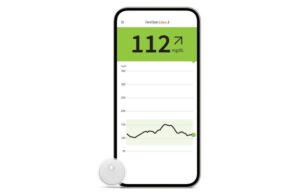
Last year, BTIG analysts spoke with an expert, determining the potential impact of GLP-1s on the diabetes market. Not long after, Abbott shared real-world data highlighting GLP-1s as a potential accelerator for its FreeStyle Libre CGM product family.
“The data analyses confirm that people using GLP-1 medicines to manage their diabetes can achieve even better results when using it together with FreeStyle Libre technology,” said Dr. Mahmood Kazemi, chief medical officer for Abbott’s diabetes care business.
Roche Diabetes Care unveils new CGM
At ATTD, Roche unveiled its Accu-Chek SmartGuide CGM offering.
Julien Boisdron, Roche Diabetes Care’s chief medical officer, called it “a solution more than a CGM” during the event. He explained that the system, comprised of a sensor and two applications, helps visualize data and make predictions as well.
Accu-Chek SmartGuide shares some similar properties to other CGMs on the market, like those made by Abbott and Dexcom. It features a 14-day wear time, a one-step application process and watertight properties. However, this CGM requires initial calibration, which is different from some of the latest-generation systems.
Roche aims to bring the real-time CGM to both the type 1 and type 2 diabetes populations, including those on insulin therapy. Users can share their data with healthcare professionals and it has a differentiating predictive algorithm included.
The CGM remains an investigational device not yet authorized for sale. Analysts appeared unsure if there are enough differentiating factors to really challenge market leaders Abbott and Dexcom.
Insulet’s Omnipod 5 shows superiority to standard pump therapy
Results from a clinical trial pitting the Insulet Omnipod 5 automated insulin delivery system against non-automated insulin therapy demonstrated improved glycemic and patient-reported outcomes in type 1 diabetes with the wearable patch pump.
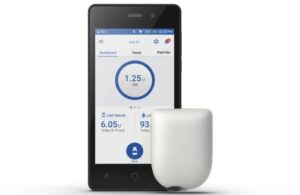
According to Insulet, the study met all primary and secondary endpoints. Exploratory endpoints showed no significant difference in the change in total daily dose from baseline or change in body mass index from baseline between Omnipod 5 and control.
Insulet also presented positive patient-reported results related to three key psychosocial measures. it included those measures — diabetes distress, hypoglycemia confidence and diabetes-related quality of life — as secondary endpoints.
Omnipod 5 use, as reported through individual surveys, resulted in both statistically significant and clinically meaningful improvements in each of these three measures compared to control.
Know Labs continues to progress its noninvasive CGM
Interim results presented by Know Labs at ATTD highlighted the accuracy of its noninvasive glucose monitoring sensor.

Seattle-based Know Labs reported a mean absolute relative difference (MARD) — a measure of accuracy — of 11.1%. Comparatively, market-leading minimally invasive CGMs from Dexcom and Abbott have demonstrated higher levels of accuracy. Dexcom’s G7 previously demonstrated a MARD of 8.2%, while Abbott’s FreeStyle Libre 3 came in at 7.6%.
However, Know Labs’ noninvasive offering remains an interesting prospect, given there are no FDA-cleared CGMs of this kind at present. Larry Ellingson, a Know Labs board member, highlighted the importance of this initial data.
“Achieving this level of accuracy in the first study using a blood reference device is truly remarkable,” Ellingson said.
Medtronic’s MiniMed 780G is performing well all over the globe
Data shared by Medtronic at ATTD included the largest set of data from early MiniMed 780G automated insulin delivery system users in the U.S. Results built upon three-year data from more than 100,000 real-world users who outperformed international time-in-range targets.
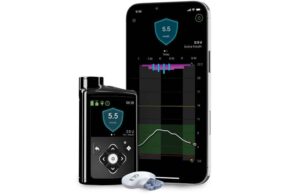
New data presented by Medtronic aimed to evaluate MiniMed 780G’s ability to help users achieve time-in-tight-range (TITR) goals. This newer metric more closely mirrors the glucose levels of individuals without diabetes. The company defines it as the percentage of time a person spends in the glucose range of 70-140 mg/dL.
Results from Medtronic showed that users (13,461) achieved a TITR of greater than 56% when using recommended optimal settings. The company defines these optimal settings as 100 mg/dL set target with an active insulin time of 2 hours.
“In the absence of a cure, our goal is to relentlessly innovate therapies to help people maximize their health without adding burden, which our newest AID system has proven to do,” said Dr. Robert Vigersky, chief medical officer for Medtronic Diabetes.

